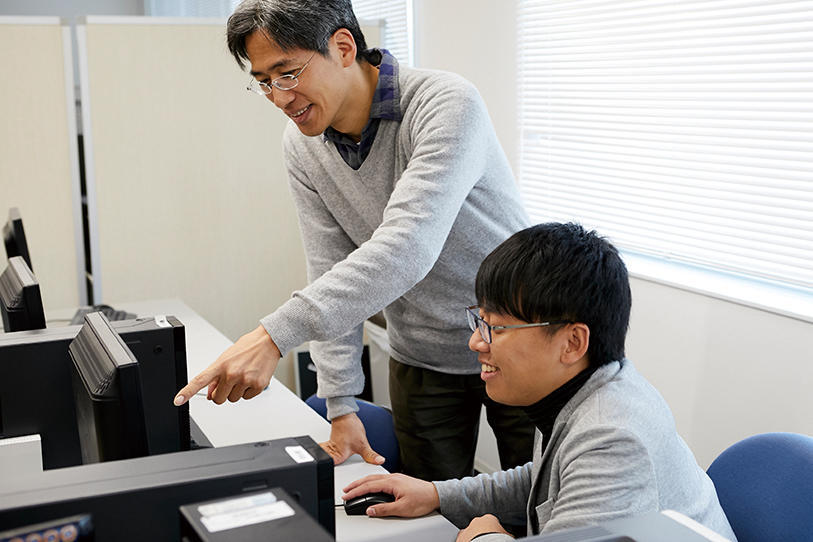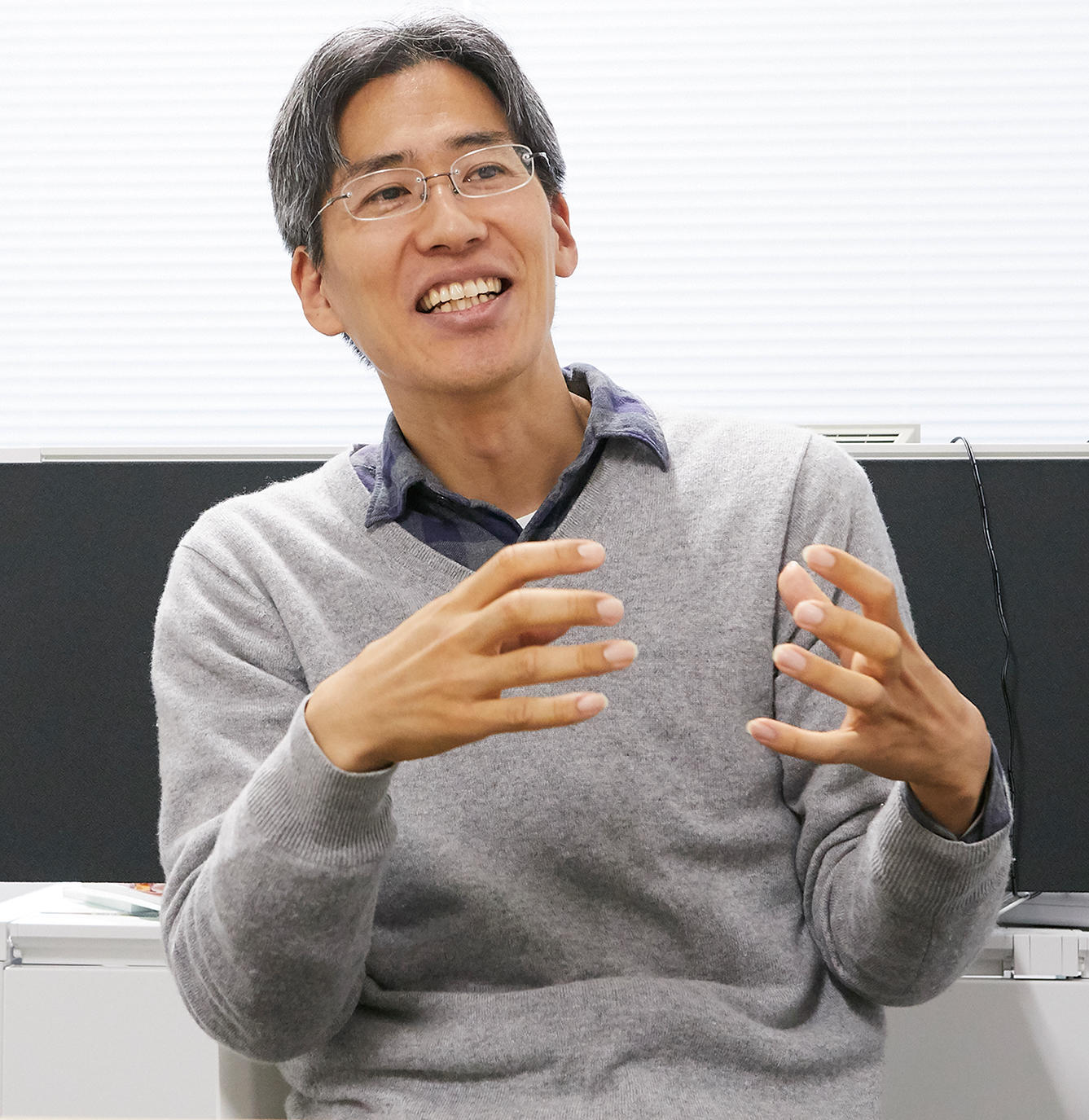- TOP
- Cutting-edge Research and Social Contribution
- Cutting-edge Research
- New perspectives on the solution of social issues through qualitative research methodology

New perspectives on the solution of social issues through qualitative research methodology

NAKAGAWA Yoshinori
- Specialized field
Social research, Qualitative research, Life story studies, Social technology theory, Future design
Reflecting on the feelings of elderly drivers when they turn in their driver's licenses
Today, various social issues have been associated with the key words region and old age. In order to clarify the structure of those issues, Associate Professor Nakagawa is conducting quantitative and qualitative social science research. His objective is to support the implementation of better societal measures by presenting his statistical analysis and the findings of his interview studies to the government.
Dr. Nakagawa says, "There are many situations where it is necessary to identify the life motivation of people who are confronted with social issues." To that end, he places emphasis on qualitative research methods such as life history and individual life stories, in order to complement the findings of quantitative studies, which alone are not suitable for developing such understanding.
One of the themes he is working on is elderly-related traffic issues. Recently the number of traffic accidents involving the elderly has been increasing, so the government is recommending that the elderly turn in their driver's licenses--and is preparing a support system for that process. However, considering this action as a personal issue, turning in one's license is a major life decision. It's a decision that can cause inconvenience and psychological distress beyond our imagination, particularly for those living in areas where a car is essential for mobility. Thus, there is an urgent need to clarify the impact of turning in one's license.
Dr. Nakagawa explains, "In order to promote the decision-making process in a form that is satisfactory for both the elderly who are persuaded by their families to turn in their licenses, and for their families, it is necessary to have a clear understanding of the meaning of driving in the life of the elderly."
Dr. Nakagawa interviewed 20 elderly people who had turned in their licenses. He also interviewed their families, examined the decision-making process at home, and collected the life stories of the elderly subjects. During the research, he found out that in many cases, for the elderly, being able to drive themselves is often their psychological foundation. How have they related to cars since they got their driver's licenses when they were young? What has a car meant to them throughout their life? By following the context of each of the stories the elderly related, it is possible to get an understanding of the processes leading up to the surrender of the license. No other research approach can elucidate and analyze the life of the elderly as a whole in the search for the meaning of turning in one's driver's license. These research findings are also significant academically.
Towards problem solving though interview-based investigation that considers psychological aspects
Analysis of the interview data reveals that turning in one's license can cause the person to lose their self-esteem. However, when older people have a chance to look back on their past lives through interviews, in some cases their perception of their life may change, and turning in their licenses may begin to have a positive meaning for them. In the future, Dr. Nakagawa intends to interview the elderly who persistently refuse to surrender their licenses; he is eager to examine in real time the process in which elderly drivers change their feelings about turning in their licenses.
The results of this study demonstrate the necessity of considering the psychological aspect of the elderly's situation, not focusing simply on the aspect of infrastructure to solve the problem of surrendering the license.
Dr. Nakagawa continues, "Is it enough of a solution to provide public transport services for those who have given up their licenses? I think that the real solution is to follow up on the situation of the elderly to the point where they come to reconsider giving up the licenses as a positive event. A suitable solution to a social problem depends on the person, so it is important to work from an individual perspective."
Dr. Nakagawa believes that suggesting a point of view that is often overlooked can help people to see this change as a source of relief in their life. If the qualitative research findings reveal the situation, the scope of interpretation of the problem will widen, and more people will begin to be able to see things from a variety of perspectives.
